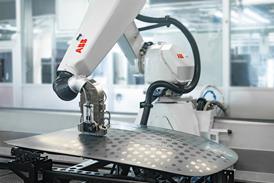Castrol’s real-time fluid monitoring system provides improved metalworking while cutting both waste and cost. Michael Dennison reports on how the company is helping carmakers control their fluid systems
The increasing pressure on carmakers to reduce their environmental impact makes today’s manufacturing world more complex than ever.
Success is built upon improving performance and driving cost efficiencies but the need to meet environmental goals often creates additional costs for businesses that are already challenged.
With this in mind Castrol Industrial Lubricants & Services has created a practical solution with the development of Castrol SystemRT (the RT stands for Real Time). This exclusive fluid monitoring system for large metalworking systems – introduced in 2006 – has enhanced manufacturing performance while at the same time both cutting waste and reducing costs.
It achieves this by eliminating the current time-consuming practice of analysing fluid samples at off-site laboratories in favour of real-time in-house monitoring of chemical profiles. This data can be used immediately to improve fluid management, preventing costly damage to machinery and extending fluid life.
Without proper metalworking fluid control, problems can arise. These include: continual fluctuations in system concentration; reduced concentration, which can lead to reduced tool life; reduced corrosion protection; and ultimately reduced fluid life. In addition, elevated concentration may result in increased product usage, dermal irritation, and residue build-up.
Put simply, an uncontrolled fluid system results in higher costs and increased risk.
The real-time fluid monitoring and analysis capabilities of Castrol SystemRT offer manufacturers an easy-to-use and reliable way of achieving consistent system stability and operational performance. This on-site functionality is available for analysing Castrol fluids at no additional cost to the customer.
Capable of testing most water-based metalworking fluids, Castrol SystemRT has already made a positive impact on overall manufacturing efficiency and costs for customers worldwide.
Its trending data helps the user improve fluid control, thus reducing the variability in concentration. One major automotive customer in Europe enrolled in a Castrol SystemCare programme (a management programme for Castrol metalworking fluids), using Castrol SystemRT to obtain actionable concentration readings. The use of daily readings and responsive corrective action allowed the customer to stabilise their systems with more timely additions of concentrate. The effect of improved concentration control reduced annual concentration additions on one central system by 4,000 litres, amounting to a 15 per cent reduction and a significant overall cost saving.
Castrol SystemRT also provides the unique ability to measure biological activity in real-time – an important improvement over standard biological analysis which requires several days to deliver results. This means any issues can be addressed immediately, reducing the risk of losing system control.
The immediate and continuous, actionable results of Castrol SystemRT allow operators to proactively control their systems’ biological growth and maintain consistent fluid parameters to prevent future metalworking fluid issues.
This technology proved vital to a major industrial customer in Europe as its team was able to use the additional functionality of real-time data to tightly control the company’s metalworking fluid parameters.
As a result, biological activity was detected up to five days sooner than previous testing would have allowed. In addition, more effective administering made possible by improved system control led to a 33 per cent reduction in biocide usage. These results, however, are by no means unusual, as similar reductions in chemical additive usage have been realised by customers using Castrol SystemRT around the world.
Environmental and health benefits
Perhaps the most significant benefit of the improved system control that Castrol SystemRT provides is that overall metalworking fluid and chemical usage can be substantially reduced. A tightly controlled metalworking fluid system not only extends fluid life, it also reduces overall manufacturing waste. This leads to savings in waste processing costs and helps companies meet their environmental objectives.
Furthermore, controlled systems require fewer tank-side additives, thus reducing operator chemical exposure. Well managed metalworking systems have also been proven to reduce the opportunity for biological growth, which in turn reduces the need for biocides and the safety risks associated with handling them.





































